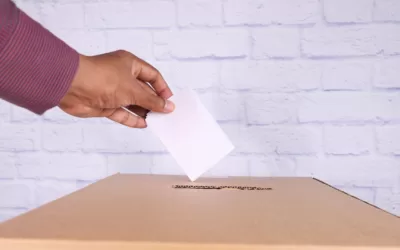In the vast theater of human civilization, governments have often stood as both protagonists and antagonists in the drama of human rights. These institutions, born out of the collective will of the populace, bear a sanctified onus to safeguard the inalienable rights of their citizens.
At the zenith of this responsibility lies the ratification of international treaties. From the Universal Declaration of Human Rights to the Convention on the Rights of the Child, nations coalesce in a symphony of accord, pledging fealty to the tenets of human dignity.
Yet, the parchment of treaties is but a preamble. The crux of the endeavor is in the meticulous transmutation of these accords into domestic legislation. It’s here that the rubber meets the road, and governments grapple with the nuances of implementation, ensuring that no citizen, regardless of their station, is bereft of their rights.
Moreover, the establishment of judiciaries, autonomous in their function, act as sentinels, vigilantly guarding against any infractions. Through judicious verdicts, they not only redress grievances but also sculpt the jurisprudential landscape, guiding nations towards egalitarian ideals.
However, the ambit of a government’s role isn’t confined to mere reactive measures. Proactive initiatives, like educational campaigns and outreach programs, serve to inculcate a culture of respect and awareness. After all, rights are not just about laws; they’re also about ethos.
Yet, the path is not always luminous. Governments, at times, face the conundrum of balancing national security with human rights, a delicate tightrope walk demanding sagacity and foresight. And in this intricate dance, civil society plays a crucial role, acting as a barometer, holding governments accountable and ensuring they don’t sway from their righteous path.
In conclusion, the role of governments in the arena of human rights is monumental. It’s a role that demands perspicacity, integrity, and an unwavering commitment to the sanctity of human dignity.
Crossword Puzzle in Context
All the words you need to solve the crossword puzzle below can be found in the text above, Enjoy!
Crossword Puzzle PDF (With Answers)
Test Yourself
Choose the best answer:
1: Governments in the history of human civilization have played roles as:
A. Mediators and diplomats
B. Protagonists and antagonists
C. Legislators and enforcers
D. Monarchs and commoners
2: Which word means to be made holy or set apart as sacred?
A. Ratification
B. Transmutation
C. Sagacity
D. Sanctified
3: What represents the formal approval or consent by an official body?
A. Preamble
B. Symphony
C. Ratification
D. Barometer
4: A harmonious combination of elements, especially outside of a musical context, is termed as:
A. Preamble
B. Symphony
C. Transmutation
D. Conundrum
5: Which term refers to a preliminary introduction, especially to a document, stating its purpose?
A. Transmutation
B. Barometer
C. Preamble
D. Sagacity
6: The action of changing or transforming into another form is called:
A. Ambit
B. Transmutation
C. Egalitarian
D. Sanctity
7: Judges collectively in a country are referred to as:
A. Protagonists
B. Judiciaries
C. Egalitarian
D. Barometer
8: The idea that all people are equal and deserve equal rights is:
A. Ambit
B. Conundrum
C. Sagacity
D. Egalitarian
9: What describes the scope or bounds of something?
A. Ambit
B. Symphony
C. Ratification
D. Transmutation
10: A confusing or difficult problem is termed as:
A. Egalitarian
B. Conundrum
C. Preamble
D. Sanctified
11: Which word defines keen insight or discernment?
A. Sagacity
B. Perspicacity
C. Transmutation
D. Barometer
12: An instrument that indicates changes in a situation or context is called:
A. Preamble
B. Judiciaries
C. Barometer
D. Ambit
13: A leading figure or primary character in a situation is:
A. Protagonists
B. Judiciaries
C. Egalitarian
D. Sanctified
14: The state of being sacred or holy is referred to as:
A. Symphony
B. Sagacity
C. Ambit
D. Sanctity
15: Who actively opposes someone or something, often serving as an adversary?
A. Protagonists
B. Antagonists
C. Judiciaries
D. Barometer
Reveal Answer Key
- B. Protagonists and antagonists
- D. Sanctified
- C. Ratification
- B. Symphony
- C. Preamble
- B. Transmutation
- B. Judiciaries
- D. Egalitarian
- A. Ambit
- B. Conundrum
- B. Perspicacity
- C. Barometer
- A. Protagonists
- D. Sanctity
- B. Antagonists
Fill in the blanks:
- The lead character in a play or movie is often referred to as the ________.
- Before the main body of a constitution, there’s often a brief ________ that outlines its purpose.
- When you face a challenging problem that’s hard to solve, you’re dealing with a ________.
- The system of courts and judges in a country is collectively known as the ________.
- A person or thing that stands in opposition or is adversarial is an ________.
- The quality of being able to see or understand things quickly and clearly is known as ________.
- A treaty is not considered official until it undergoes the process of ________.
- The ________ of a project determines its boundaries or limits.
- The process of changing from one form or substance into another is called ________.
- The inherent ________ of human life means that it should be treated with reverence and respect.
Reveal Answer Key
- Protagonist
- Preamble
- Conundrum
- Judiciaries
- Antagonist
- Perspicacity
- Ratification
- Ambit
- Transmutation
- Sanctity












0 Comments